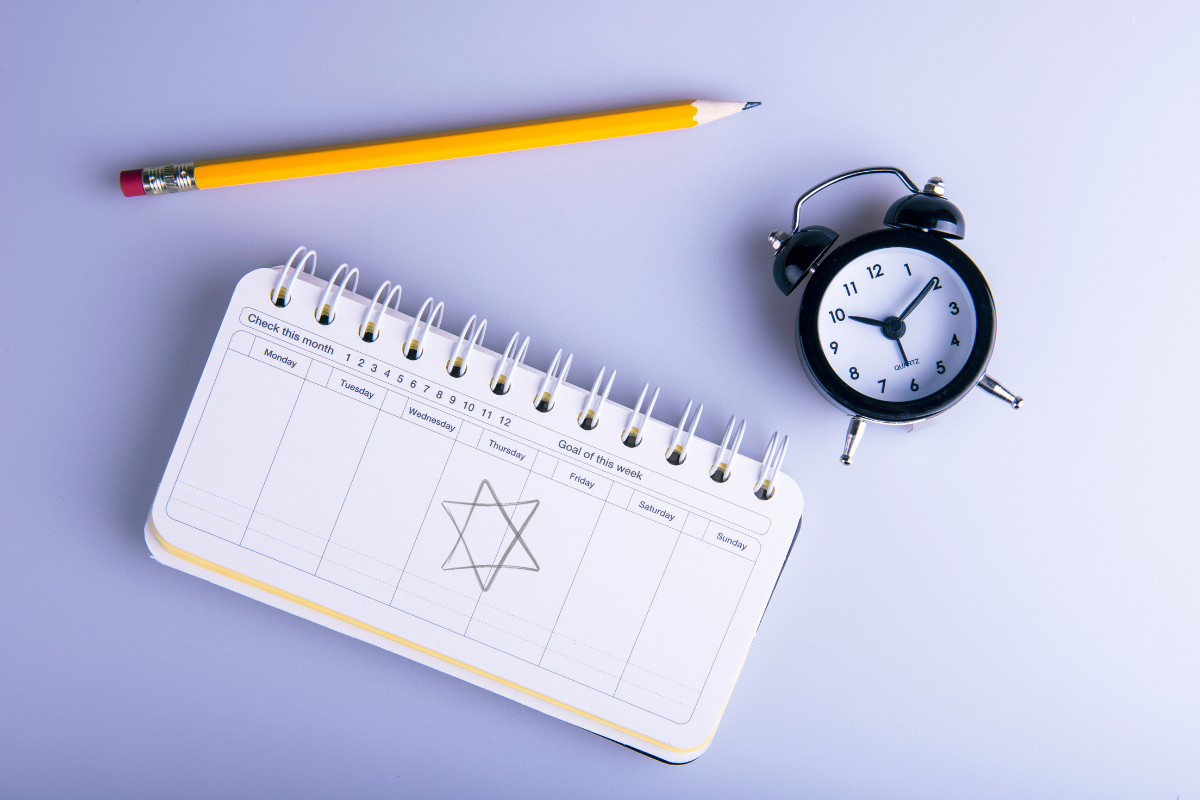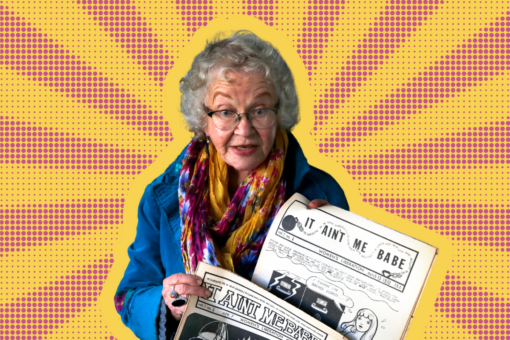I had always expected my first year in college to be challenging: being away from my family, my first time going to school without my twin sister and the sudden challenge of making new friends after going to the same school for 12 years. But I didn’t think my Judaism would ever be part of that challenge.
I was born and raised in Brooklyn — a second-generation New Yorker — so I think it’s fair to say that I am no stranger to Jewish culture. I am also a Hebrew school drop-out: At the ripe age of 11 I decided that three days of Hebrew school a week was really an unreasonable ask. I mean what was I gonna do, learn Hebrew and get Bat Mitzvahed? Apparently not. Having dropped out of speech therapy at 7, it seemed only fitting that I should continue on the path of quitting. It was, after-all, a path that was really freeing up my afternoons. Now at 19, I am not a Bat Mitzvah and I still can’t really say my “r”s. While the speech thing sometimes bites me in the ass, I can’t say that I regret my choice about Hebrew school — I was a strong-willed kid, and I really stood no chance of learning Hebrew.
All of this is to say that while growing up, I hadn’t thought much about being Jewish. At the end of high school I became a co-leader of my school’s Jewish Student Alliance and did become aware of some things I had been ignoring, like my school’s lack of Holocaust education, for example. Or the casual anti-semitism my peers were desensitized too, after forgetting that the rest of the world isn’t quite as Jewish as our little bubble. But even though I was passionate about being Jewish, it didn’t feel like a pressing issue. I was aware that I didn’t actually know a whole lot about the religion, but I also didn’t have much to prove; I was a dime a dozen in a sea of culturally Jewish kids.
Then I got to college and felt the sudden need to find community. It wasn’t just that there were so few Jewish students, it was that my community of chosen families wasn’t there. In lieu of a large extended family, my parents had built a chosen family network for us, composed of close family friends and their kids who we had grown up playing with. Many of them lived in our apartment building: neighbors that became aunts and uncles while their kids were pseudo cousins. We climbed the scaffolding, played hide and seek in the stairwell and were always in each other’s apartments. Some of that chosen family was Jewish, some wasn’t. But in that bubble I felt safe in my community, knowing I always had someone to talk to or borrow an egg from. My first week at college I felt the profound absence of that community, which was what led me to my first Shabbat service at the campus Hillel.
Spoiler: joining Hillel was not the satisfactory conclusion to my issue of finding community. It turned out to be a new can of worms. Don’t get me wrong — that first Friday night I was struck by how warm and inviting everyone was, and I took comfort in finding a new lesbian rabbi (it’s just like home!). But I also realized I knew virtually none of the blessings. In fact, the whole proceedings of the night were unfamiliar and I felt suddenly exposed as the fake Jew — I mouthed along and smiled, but even in the familiarity of the community it felt foreign. My parents weren’t religious, and when they let me drop out of Hebrew school it was always assumed that my sister and I would follow in the path of Jewish atheism. The next week, when I decided to return to Shabbat services, I had the sensation of choosing my religion — something I had never actively done before. Judaism had never been pushed on me, and because no one in my family was observant I had always assumed it wasn’t for me. Now that I was exploring the world on my own, I found myself wondering what I wanted my Judaism to look like. I wasn’t sure yet.
So when the High Holidays rolled around, I was confused. Growing up, the only time I went to synagogue was Kol Nidrei. Although we celebrated all major Jewish holidays, Yom Kippur was the only time my whole family gathered for a few hours of good old-fashioned complaining about shul while in shul. I couldn’t decide if I should request time off for the holiday. Sure, it felt weird to just go to class, but it’s not like I was the target audience for the religious exemption form. Yet I put my guilt aside and filled it out — partially because I needed a break from my three-hour drawing course and mostly because in spite of all my internal conflict, it felt like a betrayal of my identity to ignore the day. Although I knew then and now that I didn’t owe anyone proof of my Judaism, I couldn’t shake the feeling that I had to prove something to myself. I felt the weight of trying to define a new period of my life: What kind of adult was I going to be, and what kind of Jew?
I didn’t go to services, because in all honesty, I wasn’t sure I would get anything meaningful out of it. Instead I took a walk around the lake by myself. It was the first time in a few weeks I had spent any meaningful time by myself, without listening to music or watching something. I thought about the year — how dramatically my life had changed in the course of a month, how scared and grateful I felt. I wrote down how much I missed my sister, how beautiful the tops of the trees looked as they rusted and how I wanted to change and stay the same.
As I go into my second year, I don’t know if I will take time off for the holidays. Maybe it’ll feel meaningful to reflect — or maybe I’ll decide to treat Yom Kippur like any normal day. It’s not a choice that will define how real of a Jew I am, or prove something to the people around me. It’s just a choice I get to make year by year, as my Judaism evolves with me.



